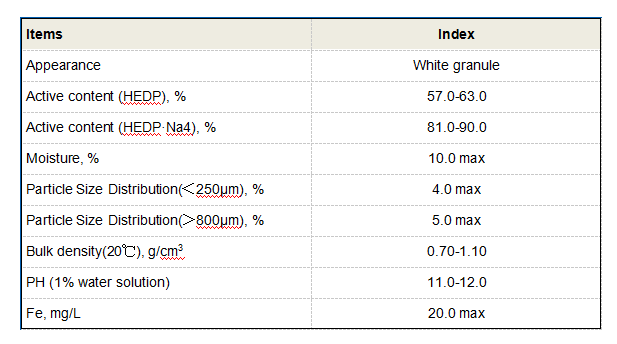limescale inhibitor
Exploring the Benefits of Limescale Inhibitors A Comprehensive Guide
Limescale is a common problem in households, particularly in areas with hard water. It consists of calcium carbonate deposits that accumulate in pipes, appliances, and fixtures, leading to inefficient water flow, reduced lifespan of appliances, and increased energy costs. To combat this issue, many homeowners and businesses turn to limescale inhibitors—substances designed to prevent or reduce the formation of limescale. In this article, we will explore the benefits, mechanisms, and types of limescale inhibitors, along with practical tips for their use.
Understanding Limescale Formation
Before delving into limescale inhibitors, it is essential to understand how limescale forms. Hard water contains a high concentration of dissolved minerals, primarily calcium and magnesium. When water is heated, as in a kettle or water heater, these minerals can precipitate out of solution and form solid deposits. Over time, these deposits build up, causing blockages in pipes and reducing the efficiency of heated appliances.
How Limescale Inhibitors Work
Limescale inhibitors work in various ways to prevent the crystallization of calcium and magnesium salts. A common method involves altering the crystal growth of these minerals, making them smaller and keeping them suspended in water. This minimizes the tendency for the minerals to stick to surfaces where they would otherwise form limescale. Another approach involves using chelating agents, which bind to calcium and magnesium ions, effectively neutralizing their potential to precipitate.
Types of Limescale Inhibitors
1. Chemical Inhibitors The most commonly used limescale inhibitors are chemical additives. These substances can be added to water systems or treated directly with the water. Polyphosphates are a typical example, as they effectively sequester calcium and magnesium ions, preventing limescale formation.
2. Magnetic and Electronic Inhibitors These devices are installed onto pipes and work by creating a magnetic or electronic field. This field is said to disrupt the formation and adherence of limescale crystals, promoting more stable crystal forms that can easily pass through the system rather than adhere to surfaces. While some users report positive results, scientific validation on their effectiveness may vary.
3. Natural Inhibitors Some natural substances, such as citric acid and vinegar, have properties that can help reduce limescale. These are more user-friendly options for residential cleaning and maintenance, often employed in DIY solutions.
Benefits of Using Limescale Inhibitors
limescale inhibitor

Utilizing limescale inhibitors can provide a myriad of benefits to homeowners and businesses alike
1. Improved Appliance Lifespan By reducing the buildup of limescale, inhibitors can extend the lifespan of appliances such as dishwashers, washing machines, and water heaters. This can lead to significant cost savings in replacement and repair.
2. Enhanced Efficiency Appliances function more efficiently when limescale is minimized. For instance, water heaters do not have to work as hard to heat water, leading to lower energy consumption and reduced utility bills.
3. Reduced Maintenance Regular use of limescale inhibitors can decrease the frequency and intensity of maintenance required for plumbing systems and appliances, saving time and effort for homeowners.
4. Environmental Impact By using limescale inhibitors, individuals contribute to conservation efforts. Efficient appliances use less energy, which can reduce carbon footprints.
Practical Tips for Use
1. Choose the Right Inhibitor Depending on your specific needs, select an inhibitor that is compatible with your plumbing system and the sources of your hard water.
2. Regular Monitoring It’s essential to monitor the condition of your plumbing and appliances to assess the effectiveness of the limescale inhibitor you choose.
3. Combine Approaches Sometimes, a combination of chemical and natural inhibitors may yield the best results. Experiment to find the most effective solution for your environment.
4. Stay Informed Research the latest developments in limescale management and consider seeking professional advice if necessary.
In conclusion, limescale inhibitors are valuable tools in maintaining home efficiency and prolonging the life of plumbing and appliances. By understanding their function and benefits, homeowners can make informed decisions about their use, ultimately leading to a cleaner, more efficient living environment.
-
lk-319-special-scale-and-corrosion-inhibitor-for-steel-plants-advanced-solutions-for-industrial-water-systemsNewsAug.22,2025
-
flocculant-water-treatment-essential-chemical-solutions-for-purification-processesNewsAug.22,2025
-
isothiazolinones-versatile-microbial-control-agents-for-industrial-and-consumer-applicationsNewsAug.22,2025
-
scale-inhibitor-key-solutions-for-water-system-scale-preventionNewsAug.22,2025
-
organophosphonates-versatile-scale-inhibitors-for-industrial-water-systemsNewsAug.22,2025
-
scale-and-corrosion-inhibitor-essential-chemical-solutions-for-water-system-maintenanceNewsAug.22,2025





